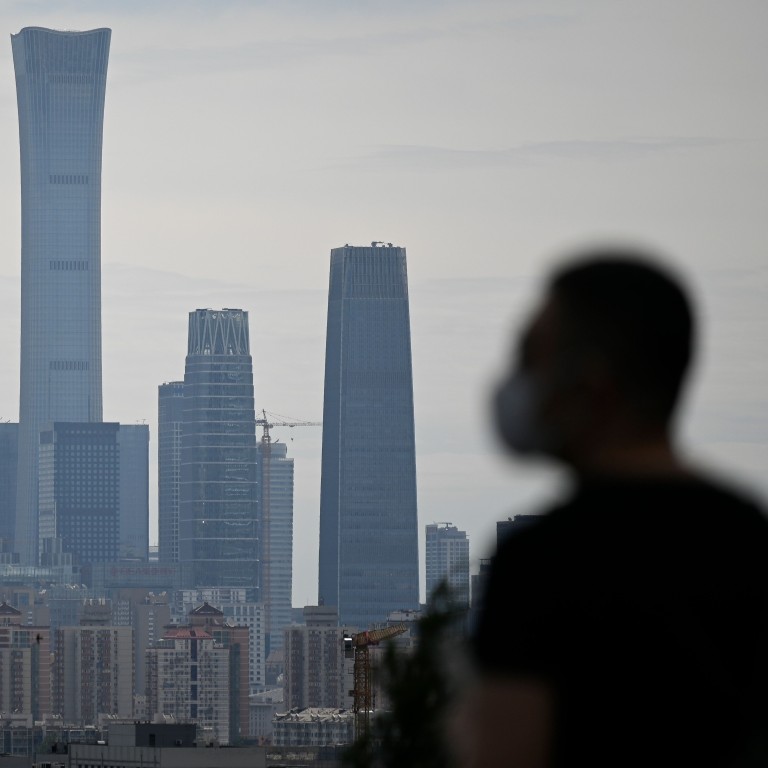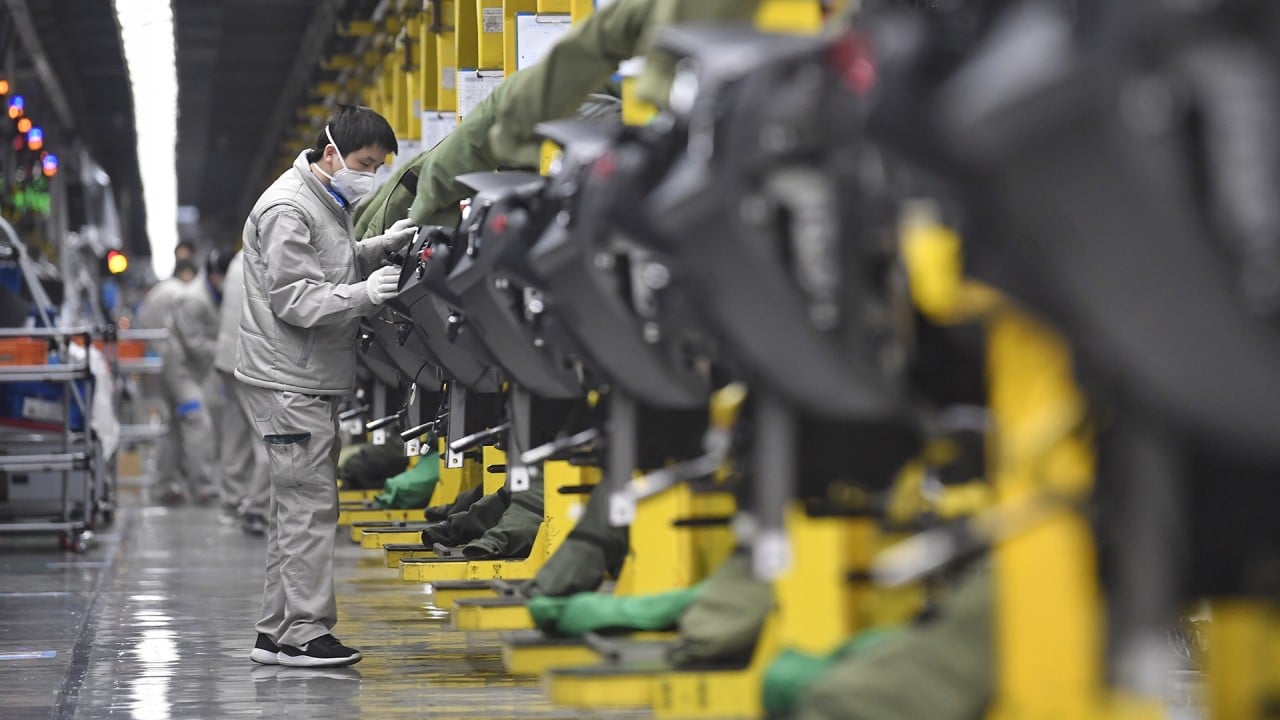
China’s national security screening rules for foreign investments enter force
- Seen as retaliation for growing opposition to Chinese investments abroad, the laws require screening across a broad range of sectors
- Foreign businesses in China worry about further market distortions, but Beijing says rules mimic screening mechanisms in other countries
China’s new rules for vetting foreign investments on national security grounds came into effect on Monday, with lobby groups warning that it could put a dent in Beijing’s plans to attract more international investors.

01:33
China’s economy accelerated at end of 2020, but virus-hit annual growth lowest in 45 years
Foreign business lobbyists in China warned that the new rules, which will be applied to a broader range of sectors than previous investment screening mechanisms, are not compatible with this bid to lure more international investors.
European businesses are concerned by the broad scope of the new rules, said Joerg Wuttke, president of the European Union Chamber of Commerce in China.
“Overall, the measures narrow the scope of foreign investment and are inconsistent with China’s stated goals of further opening-up as well as increasing predictability and transparency in the business environment,” Wuttke said, adding that the chamber was concerned about the lack of an appeals process in the protocol, which states that all national security review decisions are final.
The screening mechanism covers everything from defence to agriculture and supersedes China’s previous national security review rules introduced in 2011 and 2015.
It will be administered by the National Development and Reform Commission (NDRC), the country’s top economic planning authority, and the Ministry of Commerce.
Foreign investments in a plethora of key sectors should now be reported to a standing committee, seen as similar in scope to the Committee on Foreign Investment in the United States (CFIUS), whose powers were dramatically increased under the Trump administration, resulting in a plunge in Chinese investments in the US.
In a legal note, Hong Kong-based law firm King & Wood Mallesons said the “measures are broader [than before] and apply to all foreign investments in China, whether directly or indirectly and regardless as to whether the target is a foreign-invested enterprise or domestic enterprise”.
It‘s conceivable that we could see some actions materialise over the next few weeks, particularly against firms from third countries, which the rules target
“It‘s conceivable that we could see some actions materialise over the next few weeks, particularly against firms from third countries, which the rules target,” said Nick Marro, global trade lead at the Economist Intelligence Unit (EIU), who added that Beijing could be kept from deploying the rules should countries like the US reverse some of the bans on Chinese investments.
Once an investment request is submitted, it should take 15 days for the committee to decide whether to undertake the review and another month to complete it, the guidelines say. In special circumstances, which are undefined, it could take at least an extra two months to complete the review.
In an explanatory note published in December, the NDRC said the ruling was comparable to foreign investment screening mechanisms in the US, EU, Australia, Germany, Japan and Britain.
Just over a week after announcing the rules in December, China sealed a new investment treaty with the EU. In draft text seen by the South China Morning Post, both parties’ respective investment screening policies supersede any concessions contained in the deal.

03:29
RCEP: 15 Asia-Pacific countries sign world’s largest free-trade deal
Chinese firms have faced increasing barriers to investing abroad in recent years, with outgoing US President Donald Trump continuing to unveil hurdles in his final days in office.
On Monday, two days before he is due to leave the White House, Trump signed an executive order directing US agencies to assess security risks posed by China-made drones used in US fleets and to prioritise removing them.
Last week, US government agencies blacklisted a new raft of Chinese firms, including smartphone manufacturer Xiaomi and the Chinese National Offshore Oil Corporation.
Analysts suggested the inauguration of president-elect Joe Biden on Wednesday would not bring a dramatic shift in policy.
“The bipartisan consensus that has emerged against China in Washington means a reversal of US policy actions is pretty unlikely. This will preserve risks facing multinational companies in China over the foreseeable future,” said Marro at the EIU.

